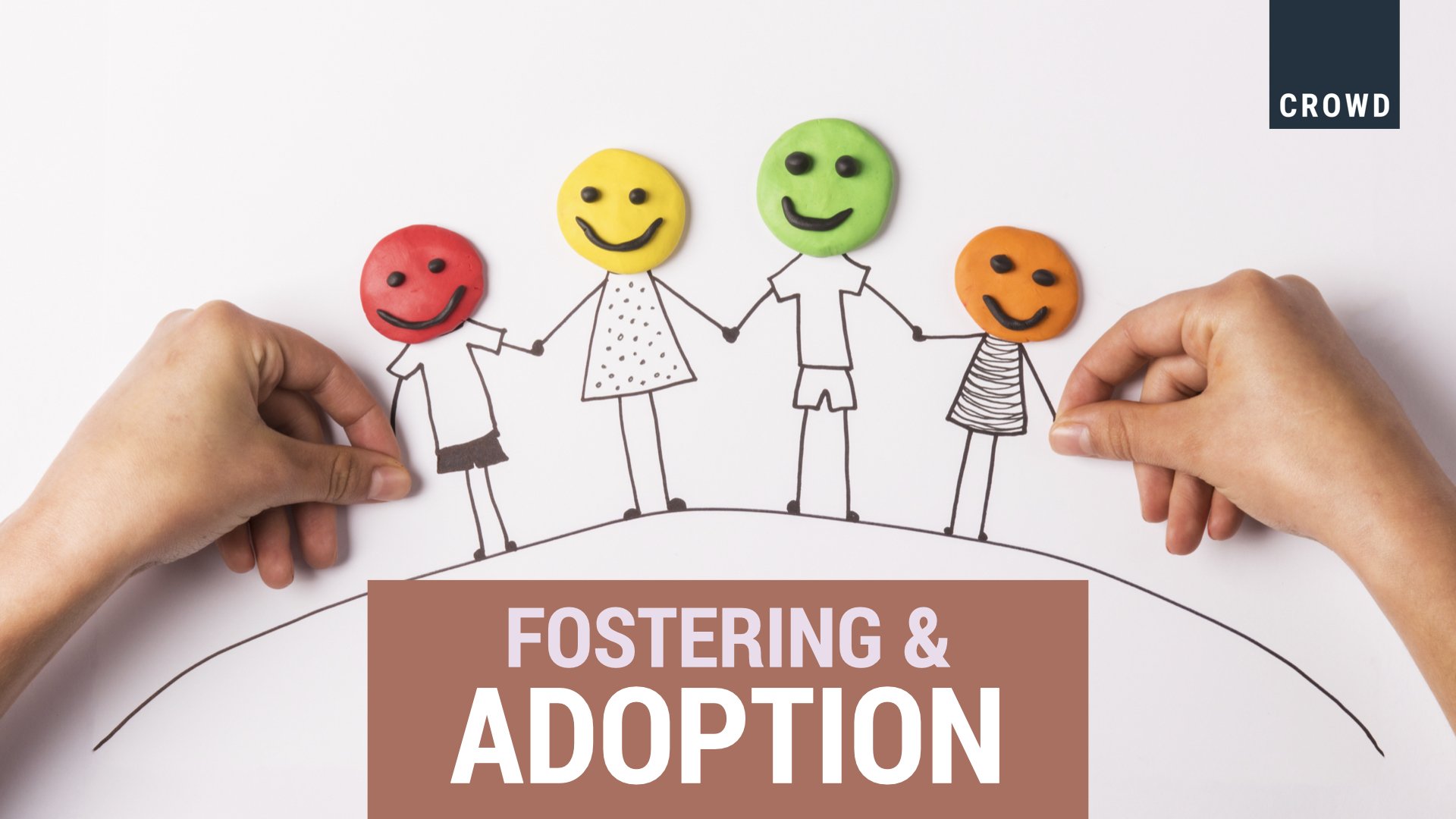What Does The Bible Say About Anger?
Video Timeline
WELCOME
0:00 - Welcome with Matt & Mim
TALK with Sharon Edmundson
03:52 - What Does The Bible Say About Anger?
05:30 - What Is Anger?
05:51 - What Makes God Angry?
10:14 - How Should We Respond To God's Anger?
11:25 - Can We Be Angry?
13:12 - Righteous vs Unrighteous Anger
14:19 - How To Deal With Our Anger
19:36 - Other People's Anger
23:10 - Conclusion
PRAYER
24:33 - Prayer For Ukraine
WORSHIP
27:07 - How Deep The Father's Love with Lyrics
CONVERSATION STREET with Matt & Mim
30:44 - Conversation Street
32:17 - Is Anger A Sin?
35:38 - The Psychological Definition Of Anger
37:35 - What About God's Anger?
41:24 - Dealing With Anger From A Psychological Perspective
45:18 - Dealing With Anger In Marriage Or Family
47:43 - Anger And Confrontation
CLOSING WORSHIP
58:16 - All Creatures Of Our God with Lyrics
Podcast:
What does the Bible say about Anger?
— Sharon Edmundson
What did you think when you heard what today's talk is about? When some people think about the Bible and anger, they think of the God in the older part of the Bible, who seems angry all the time, and the God in the newer part seems loving, as if they're two different people. If that's something you've wondered about, I've done a talk for Crowd before on this subject that you can listen to on the website. It has the really catchy title of "Is the loving God of the New Testament the same as the angry God of the Old Testament?"
As a child growing up in church, I heard verses such as the following one, and thought it was wrong to be angry at all.
“But I tell you that anyone who is angry with a brother or sister will be subject to judgment. ”
It was a really unhealthy belief because when I got angry, which was often, I felt bad about it and tried to suppress it. And that turned into depression. I was angry at other people, myself and at God. Maybe you're like me and your natural tendency is to suppress anger and pretend that it isn't there. Or maybe you're the complete opposite and tend to be more explosive and to lash out. One of our kids used to communicate their feelings with their fists when they were little. Or do you fall somewhere in the middle? When I was in my 20s, I went for Christian counselling, and I found out some of what the Bible actually says about anger, and it started to set me free. Today, I'm gonna look at God's anger, our anger and other people's anger, and some suggestions on how to respond to each of these.
What is anger?
The Cambridge Dictionary defines it like this. Anger is a strong feeling that makes you want to hurt someone or be unpleasant because of something unfair or unkind that has happened. The Bible has many verses that talk about God being angry, but what makes him angry? Let's look at his anger in the context of the story of the Bible as a whole.
What makes God angry?
The Bible tells us that God made the universe, our Earth, all the animals and plants, but that us humans were a special creation, because we're made in the image of God Himself. God gave people a special role and a special place in the world. We're made to rule the earth and take care of it on His behalf, men and women together. How do you think we're doing so far with ruling the earth and looking after it? Not so well, maybe. God had this to say about what he created. God saw all that He had made and it was very good.
Have you ever done something creative, and been really pleased with what you've made? Our downstairs loo was, for years, we've had problems with major leaks. So there was no ceiling, the wallpaper was hanging off, there was mould. The toilet was broken. No one liked going in there. But recently, we did it up, we hid the pipes, tiled the walls, we had a new ceiling, we re-plastered and we painted. For a small room, it had a seriously huge amount of work done in it. I often go in there now, for no other reason than to stand back and admire the work. How much more must God have done that with the world he created?
But his world didn't stay a nice, shiny world. As people, we rebelled against Him, we did things our own way and made a big mess in the process. You just have to listen to the news to see that. The Bible tells us that the whole of creation is affected by our rebellion. So we see both signs of great design and purpose in the world but also of death and decay. And do you know what? If someone came into my house and smashed up my lovely downstairs loo, I would be so angry. How much more does God have the right to be angry when we mistreat each other and the world He has given us?
Here are some of the things that make God angry according to the Bible.
When we take advantage of the widow or the fatherless.
When we don't listen to him, disobedience.
Being stiff-necked.
Causing others to do wrong.
When we do wicked things.
When people sacrifice their sons and daughters in fire.
When people are exploited.
There are many other examples of things that make God angry. But if I could summarise them, it seems that God is angry when the people he loves, that's all of us, are mistreated or mistreating others and not living up to their purpose. Love and anger are like two sides of the same coin. Anger results when what is loved is threatened.
But here are some other things that the Bible says about God's anger:
“And yet He was compassionate; He forgave their iniquity and did not destroy them. He often restrained His anger and did not unleash His full wrath.He remembered that they were but flesh, a passing breeze that does not return. ”
“For his anger lasts only a moment, but his favor lasts a lifetime; ”
So, God is slow to anger, his anger is short, and he restrains his anger. God is perfectly just and righteous in His anger. God loves us so much but He doesn't just brush off our evil and rebellion as if it doesn't matter, because it does matter. Just as I wouldn't brush off the issue if someone destroyed my downstairs loo, just saying, that would definitely not be okay.
God doesn't say that things that hurt us don't matter. He says they matter very much. When we're morally wrong, we deserve punishment. But instead of punishing us, He came to earth as a human, Jesus, and took our punishment on himself. By dying on the cross, He poured out His anger towards us on himself so that we wouldn't have to take it. He swapped places with us, he takes our filth and gives us his spotless righteousness. Take a look at this,
“But God demonstrates his own love for us in this: While we were still sinners, Christ died for us. Since we have now been justified by his blood, how much more shall we be saved from God’s wrath through him! For if, while we were God’s enemies, we were reconciled to him through the death of his Son, how much more, having been reconciled, shall we be saved through his life! ”
How should we respond to God's anger?
Firstly, we need to recognise that God is always right in his anger and his judgement. We can tend to think that we're the ones who define what's right and wrong, but our life is just a speck in time. Do we really think that we know better than the God who created everything? What's our knowledge compared to his?
Secondly, we need to recognise that God has taken his anger for our rebellion on himself. We couldn't handle what we deserved. So he came in human form to live and die and rise again so that our relationship with Him is restored.
And thirdly, we have a choice. Forgiveness and a restored relationship with God are his gift to us. But he doesn't force it on us. We have to choose if we accept this gift or not. Accepting his forgiveness doesn't mean we go on living our own way. Because when we love someone, we don't want to hurt them. And when we love God, we don't want to hurt him by trampling on the things and people that he cares for.
John 3:36 says,
“Whoever believes in the Son has eternal life, but whoever rejects the Son will not see life, for God’s wrath remains on them. ”
Can we be angry?
What about us? We're not God, we're just human. Is it wrong for us to be angry? The answer to that is yes, and no. Have a look at these two verses. Matthew 5 says,
“You have heard that it was said to the people long ago, ‘You shall not murder, and anyone who murders will be subject to judgment.’ But I tell you that anyone who is angry with a brother or sister will be subject to judgment. ”
And Ephesians 4 says,
““In your anger do not sin”: Do not let the sun go down while you are still angry, and do not give the devil a foothold. ”
So the first verse seems to be saying it's not okay to be angry. But the second one says it's possible to be angry without sinning, without being in the wrong. Whatever our reason for anger, these verses show that we're meant to deal with it quickly and not let it fester for days and turn into hate. Sometimes we are right to be angry, and sometimes we're not.
Now Tim Keller has done this fantastic talk about anger, and it's called "The healing of anger". And you can watch it on YouTube. In that talk, he says that because anger is part of love, our anger gets disordered, because our love is disordered. We're created to put God first and then love for other people. We're created to get our identity and significance from Him. But often we get things the other way around, and put things before Him. And we put our identity and significance in the wrong things. And because we've misplaced our love, we get angry at the wrong things.
And we can be a bit contrary at times, can't we? We get angry when we see evil and injustice in the world and we're angry with God for not doing anything about it. But we can also be angry with God when we see passages in the Bible where God having been incredibly patient will no longer put up with excessive evil anymore, and orders the destruction of those doing the evil.
Righteous Vs Unrighteous anger
Now I've had times where my anger is a righteous anger and times when my anger is all wrong. And I expect you probably all have as well.
So let me give you some examples. So I teach English to women from around the world whose first language isn't English. And when I listen to the stories of some of my students, some of whom have been trafficked or fled war situations, I get angry for the way they've been treated and the things they've been through. This would be a righteous anger, its the sort of thing that God gets angry about.
On the other hand, I remember a time when I was at Uni, and I'm sure there have been loads of times since this, but this one sticks out in my mind. And I remember that I was invited to a social gathering of some sort. And at that point I wasn't very confident at all. And it took me a lot of courage to decide to go to this event. And part of that courage was I thought my friend would go with me, but she didn't want to go. So I'd have to go on my own. And I was so angry with her. But she hadn't actually done anything wrong. It was my insecurity that made me angry.
How to deal with our anger?
#1 - Admit that you're angry
Firstly, we need to admit that we're angry, which is the part that I used to have trouble doing. We all get angry, it's part of being human. And in the book of Psalms, which is a book of poetry in the Bible, there are verses where the author pulls out all of their emotions to God, including requests to God to destroy their enemies. God can handle our emotions.
We can ask God to show us if our anger is godly or not. If it's not, we could admit to Him that we've got it wrong and ask for his forgiveness. And we can ask him to show us what is the root of our anger and to change us and help change us from the inside? Are we angry that someone more suited to the job got the promotion we wanted because our security is in our job title? I found that the more I've worked with God and learn how he sees me in the world, the more I've accepted His love. And the more I've accepted his love for me, the less angry I've got at the wrong things.
#2 - Practice Forgiveness
Another thing that has helped me loads is forgiveness. And we've done a couple of talks about this in the past, which you can watch on our website. When I didn't admit that I was angry with people, I couldn't deal with the hurt. So it all got stuffed down. And the result of this I said before was depression. But the other result was that anytime someone did even the slightest little thing to hurt me, I would overreact to it internally.
To give you an analogy, in our kitchen, we've got a cupboard which is known as the cupboard of doom. It houses all our plastic pots and our drinking bottles and stuff like that. And it tends to be often really full and not packed very well. So that when you open the door to put something relatively small in, other things just jump out at you. And it's like that with forgiveness, if we don't forgive, it's like we're collecting rubbish in our soul, or plastic pots. And when we've got something relatively minor that happens, we open the door to stuff that in as well. But all of the past hurts jump out on us. And we have an extreme reaction to something relatively small.
Forgiveness meant that what other people had done no longer had a hold over me, and no longer had that extreme reaction to the small stuff. When I first started to actually deal with all this, it took me literally weeks to forgive someone for really small stuff. But as I had more practice, it got a lot quicker. Of course, some things are much easier to forgive than others.
#3 - Ask for help
Sometimes we really need so much help from the Holy Spirit and from other people. The Holy Spirit doesn't just leave us to try and sort out all this stuff on our own. He is gentle and so humble and willing to help us. But maybe you're someone who really struggles with anger, but you have no idea why. It could be that you have loads of stuff buried deep inside you from childhood that you didn't know how to process at the time. Don't feel that you have to struggle on your own. Ask the Holy Spirit to help you process all that you've been through. And maybe there's someone at your local church who's skilled at helping with these things, or you could contact a counsellor.
Now, these next verses are a good reminder for me, from James 1 and they say,
“My dear brothers and sisters, take note of this: Everyone should be quick to listen, slow to speak and slow to become angry, because human anger does not produce the righteousness that God desires. Therefore, get rid of all moral filth and the evil that is so prevalent and humbly accept the word planted in you, which can save you. ”
Just as God is slow to anger, we too are called to be slow to anger. Sometimes my first reaction when something happens can be to feel angry. Maybe someone hasn't done what they said they'd do and I'm annoyed and verging on that anger. I'm still learning to take that step back. And I feel like to remember patience, maybe something that's happened that meant that they weren't able to do what they said they'd do, maybe I've misunderstood, maybe I forgot that we've changed plans, all of which are possible.
Romans 12:19 says,
“Do not take revenge, my dear friends, but leave room for God’s wrath, for it is written: “It is mine to avenge; I will repay,” says the Lord. ”
When we feel angry we're not to take revenge. We can leave the person to God knowing that He will take care of them. When I went to counselling, this next verse was really helpful to me, it's from Ephesians 4 and says,
““In your anger do not sin”: Do not let the sun go down while you are still angry. ”
It basically says that it's possible to feel angry and not sin. One of the great things about being human is that we can choose how to respond to situations. Just because we feel angry doesn't mean that we have to act on it in a negative way. Even if we have good reason for our anger, it doesn't give us reason to do the wrong things. We can choose to forgive, to be patient, to take a step back, to pray and ask God for his wisdom to get out of an abusive situation or to help bring justice to situations. We have choices. With God's help, we're not just at the mercy of our emotions. Proverbs 14:29 says,
“Whoever is patient has great understanding, but one who is quick-tempered displays folly. ”
Other people's anger
So let's look at other people's anger. Just as our anger can either be for good reasons or can be unjustified, so can the anger that other people have. Take a look at these verses,
“Therefore, if you are offering your gift at the altar and there remember that your brother or sister has something against you, leave your gift there in front of the altar. First go and be reconciled to them; then come and offer your gift. ”
These verses show us that if someone else is angry with us, we have a responsibility to do what we can to sort out the situation where appropriate. Of course, reconciliation isn't always possible if someone else is behaving wrongly. There are also verses that talk about confronting that person, taking another person as backup if needed.
And I've said before, God doesn't say that wrong doesn't matter and that we should brush it under the carpet. The complete opposite is true. If someone gets angry often and easily, maybe we need to take a step back from the relationship. Have a look at these verses,
“Do not make friends with a hot-tempered person, do not associate with one easily angered, or you may learn their ways and get yourself ensnared. ”
“An angry person stirs up conflict, and a hot-tempered person commits many sins. ”
Here are some more great verses that help us deal with other people when they're angry.
“A gentle answer turns away wrath, but a harsh word stirs up anger. ”
“A hot-tempered person stirs up conflict, but the one who is patient calms a quarrel. ”
Many years ago, I was really angry with Matt about something. I know you're shocked about that. How could anyone be angry with him? I can't remember what it was. But I was rehearsing all the main things I wanted to say to him in my head. When I confronted him about the situation ready to have a go at him, his response was to apologise. Well, that totally took the wind out of my sails. The things I'd planned to say no longer seemed relevant.
It's the same for us. When we're dealing with other people's anger, maybe we don't have anything to apologise for. But still a gentle answer can have a powerful effect. And maybe you've got your own examples of where this has worked for you. So we've seen when dealing with other people, God wants us to be patient and forgiving. We're not to seek revenge. That can be hard enough in itself. But the Bible takes all this to a whole other level. Read these verses:
“Do not take revenge, my dear friends, but leave room for God’s wrath, for it is written: “It is mine to avenge; I will repay,” says the Lord. On the contrary: “If your enemy is hungry, feed him; if he is thirsty, give him something to drink. In doing this, you will heap burning coals on his head.” Do not be overcome by evil, but overcome evil with good. ”
Here God's saying not just to hold back from revenge, but to actually love our enemies, to repay evil with good. That's a bit shocking. Why does He say that? Because that's what He's like. And that's how His kingdom works. How is it possible for us to love our enemies? How is it possible to go from being angry about the fact that we've been mistreated to loving the people who've mistreated us?
I think we can only do that with God's help and by recognising that when we were God's enemy, he still loved us. When we receive His love and forgiveness for ourselves, we can then give it out to other people. It's not about trying hard to be good. It's about passing on what we've received ourselves.
Conclusion
I'll leave you with these verses from 1 John because they sum it up really well,
“Dear friends, let us love one another, for love comes from God. Everyone who loves has been born of God and knows God. Whoever does not love does not know God, because God is love. This is how God showed his love among us: He sent his one and only Son into the world that we might live through him. This is love: not that we loved God, but that he loved us and sent his Son as an atoning sacrifice for our sins. Dear friends, since God so loved us, we also ought to love one another.”
CONVERSATION STREET
With: Matt Edmundson & Mim Moorcroft.
What is Conversation Street?
Conversation Street is part of our live stream, where the hosts (in this case, Matt & Mim) chat through Sharon’s talk and answer questions that were sent in through the live stream. To watch the conversation now, click here.
Matt Edmundson - So let's talk about anger. Mim, you said that you're not an angry person. Did I misunderstand?
Mim Moorcroft - I just said I relate to what Sharon was saying because, growing up in my house anger was a negative thing and that you shouldn't be angry. So I was a bit like Sharon, just stuffed it all down, but actually was angry.
Is Anger a Sin?
Matt - Oh, okay. I think we all are, aren't we? It's part of being human really. So were you like anger is a negative thing just because that's the way it was thought of in your house, and therefore you shouldn't be angry? Was that the way you were brought up?
Mim - Yeah, I think it was taken from those verses in the Bible of do not have a hot temper and so anger according to the Bible is wrong, explosive and harmful and doesn't have a good outcome. But I think, you're either at that extreme where you end up in fights or shouting at people, or we British people stuff it all down and think it's hard to do anger well.
Matt - Yeah, it's interesting, isn't it? There's this whole thing called anger management, how to manage your anger. I didn't grow up in a Christian family. I didn't grow up with the Bible verses that it's a sin to be angry and the misunderstanding that comes with those and I thought Sharon actually did a good job of addressing that.
But when I was a kid growing up, I was quite a timid kid. But my mum knew that if I got angry, I just was like The Incredible Hulk. I didn't turn green and burst out my trousers. But it was like, I changed personality. And I used to do Judo when I was a kid. The reason mom shipped me off to Judo was because I got bullied and she just got bored of me coming home saying I didn't have any dinner or anything like that. And my mom was very stoic. If there's a problem, let's fix it. So she shipped me off to Judo.
I had to do Judo lessons and we had these competitions. And I was like, I'm just gonna lie on the floor, you can win. But my mom would actually take me off to the side of the ring before my fights and get me angry. She knew what to say and how to make me angry. Because she knew if I was angry, I would just go out there and I was a different kid, and I would win all of the fights. So all the Judo medals that I have are basically because my mom made me angry. So obviously because I didn't grow up with this "It's a sin to be angry" thing, I think when you read verses like do not be angry, I suppose you can see why people have that kind of thinking, and why do you think that's dangerous thinking?
The psychological definition of Anger
Mim - I think at the root of anger is always something that does actually need addressing. And if you don't address it, it just stays there and festers and it actually can get worse inside of you. I'm gonna get all like psychological on you now. Anger is a secondary emotion. So anger is never just purely anger on its own, it is as a result of a fear or a threat to a basic human need. That's when we get hangry when we're hungry. For basic human needs, we need to eat, we need to drink, we need to feel loved, we need to feel safe and secure. And if we don't feel those things, we can get angry because of it. So if you ignore anger, you're not addressing one of your basic human needs.
Matt - So in other words, it's a warning sign that something else is afoot. Dave Connolly, who was one of the founding pastors of Frontline and a very good friend of mine. He's just such an all around awesome, dude. He's been on crowd quite a bit. He said to me years ago, Matt, the issue is never the issue, but it is a good place to start. And I think it's such sage advice. And in my head, I'm thinking he's talking to me about, if your wife's annoyed with you kind of marriage advice, but I think it's generally good advice. That actually the issue is never the issue, but it's a good place to start. So what you're saying is, if you're feeling angry, which is the issue, then start there and understand why you're angry, which is the real issue. And work on that. I like that, that anger is a secondary emotion. But what do you think about this whole idea of God's anger, God getting angry?
What about God's anger?
Mim - Yeah. I think God has, like Sharon was saying, a right to be angry sometimes doesn't he? And that it's never a wrong kind of anger. So I think she was right, if we are damaging each other or what He has made, then, of course, he's angry because he loves us too much not to be. And, I don't think God, then just annihilates us all because of that, he's gracious, he gives us lots of chances. He reminds us of things, he sends people our way to help us with the things that he wants us to work on. But yeah, it's a funny thing, isn't it? To imagine an all loving God to be angry? It's just like she was saying, the two sides of a coin. It's hard to imagine the two together.
Matt - Yeah. It's funny. Because, Sharon touched on in the talk that one of the things that really winds people up is they see a lot of suffering and injustice in the world and are like, why is God not doing anything? In other words, why is God not angry about this and dealing with it? Yet, on the other hand, when they read stories about God's anger, they're like, well, that's a bit wrong, isn't it, that he got angry about it? And so I thought that was quite an interesting juxtaposition that she'd brought because I had not really thought about it in those terms before. Actually, on one hand, we want God to be angry. But on the other hand, we don't want God to be angry. And so it's kind of a catch 22 situation, isn't it?
Mim - We do the same as well, don't we? We get really angry about something, but then we don't do anything about it. So we all know people like that, that get really riled up and you think, Well, what are you actually doing about that?
Matt - Do you think it's a bit of a leading question? Do you think then that as a church as Christians, we talk a lot about the love of God, God's love for us, and quite rightly so. Because it's the gospel, it's the good news. It's the story of why Jesus came, for God so loved the world that he sent Jesus. But we don't often talk about God's wrath or anger. And I wonder why that is?
Mim - I think it's a New Testament thing, isn't it? So like, Sharon was saying, when Jesus came and took all of that upon himself, we don't need to worry about that anymore. In a sense, we shouldn't take it for granted. But God is not going to come and beat us down with a big stick if we do something wrong because of Jesus and what He did for us. So I think the pressure's off in that sense.
Matt - That's a good point. Although, I think I've made jokes in the past where people have said something, and I've just mockingly stepped away from them, and said, I don't want to be near you and the lightning strikes. You know, that kind of mocking? Like, you're gonna get zapped for saying that type of thing, which is a bit like, actually, God's gonna zap you for that. And it's like, oh, hang on a minute. Maybe my theology is a little bit messy.
Mim - Faulty theology, Matt.
Dealing with anger from a psychological perspecive
Matt - Yeah, I need to deal with it, the issue is not the issue. But anyway. So you've got angry, I've got angry, right? And Sharon talked about how to deal with anger a little bit in the talk, which I thought was great. And she talked about, can we be angry? And yes, we can. And there's righteous anger. And there's unrighteous anger. In other words, its anger which makes sense, like when we see injustices, and she talked about people getting trafficked. But she talked about how to deal with anger. And the first step is admitting that you're angry, which I thought was an interesting statement, because for me, I think this is probably the hardest thing to do. I don't know if you've found that.
Mim - Yeah. I think anger is such a big emotion, isn't it? It's one of the big ones. So you feel it really strongly. And I think you can go to zero to 100 in seconds. Now, I think that's where the Bible talks about, quick tempered and quick to listen, slow to speak. Very often, when you get angry, you just see red. And that's it. So yeah, I think, the first step is just stopping yourself.
And one of our psychologists at work told us an acronym called STOP. So the S is for literally Stop. So if you feel yourself getting angry, stop before it gets to that red zone. T is just Take a step back and Take a deep breath. And when we take a deep breath, that stimulates our parasympathetic nervous system, and it calms us down. So it's the part of our nervous system that stops you from reacting so strongly. So when you feel threatened, you want to go fight or run away, fight or flight. So it stops that and calms you down, allows you to think a bit more clearly. O was Observe. So what do you think it was that made you so angry? What's underneath it? What need have you got? How have you felt attacked? And then P is Proceed? So once you've thought about it a bit more and thought, oh, that's the reason why. Now, do what you need to do about it. So in a bit more of a thought through way.
Matt - Yeah, a bit more of a mindful way. That's really interesting. So that was a psychologist teaching that at work. Like it. I would never have thought of that. But that's cool. This whole idea of the simplicity of stopping and breathing, can change a lot of simple things. I find that fascinating, because of the story of how God formed man. So he formed him from the dust of the earth, and then he breathed life into his nostrils. And it's this whole breath of life thing.
And there's a really interesting story in the Gospels where Jesus breathes on the disciples. It's like a symbol that the Holy Spirit has come. And there's just something quite divine in the way that God has made us where we just stop and breathe in, like we're breathing in God somehow and we see things from a slightly different perspective. And it's a really simple thing to do, but has profound effects. Just stop, breathe and I need to be taught that lesson on quite a regular basis though. I don't know if you're like me.
Mim - With me, it all comes out later.
Dealing with anger in marriage or family
Matt - So that's how the psychologist says to deal with anger, but how do you deal with it in the context of marriage or with the kids, for example?
Mim - So with my little boy, he gets angry really quickly. And very often I get caught up in, what he's actually screaming about. And then I have to take a step back myself and go, actually, he's probably not angry about that. It's something else. And he just needs a cuddle, he just need some physical touch. And then he'll cry and tell me what's actually wrong. So if I start to go into it with him, but what is it when you're angry about, blah blah, blah, and it just fuels it bigger and bigger and bigger. But if I give him a hug, it just kind of diffuses it. So that's how I deal with it with my kids.
And myself, I have to not let it fester and build up inside. So I have to take some time. I can't just say something straight away, because it will come out wrong. I need to take that step back and think about it and go right, What was it that I was actually angry about? What made me angry? Why is that I am so angry? Maybe pray about it. God show me why is this important? Do I need to bring this up or can it be left? Do I just need grace for this situation? And so yeah, I need to kind of ponder a little bit and if I still feel that I need to talk about it then bring it up at a later time.
Matt - And do you find that easy? Because one of the things that implies, and this is where I wonder whether a bunch of people struggle with this, is if you're processing stuff and you need to talk about it with somebody else, somebody else may have been involved in that conversation. So I'm gonna pick on your husband, I'm sure he has never made you angry, but I'm just gonna pick on him. Do you find that once you have processed it, there then becomes an element of confrontation where you have to go and talk to that person? And if it's your kids, if it's your partner, its a little bit easier. If it's somebody outside of that inner circle, it actually becomes a little bit trickier. Right? And so how do you find that whole confrontation side of things?
Anger and confrontation
Mim - Awful, I hate confrontation. I hate conflict. I'm a "don't rock the boat peacekeeper, absolutely hate it. My heart goes mad and sweating. It's horrible. But I am learning to do it more and more. It's taken me a long time. I think it's really important to state your heartfelt intention with it. If you're going to have a difficult conversation with anybody, they need to know why you're doing it. It's not just because you want to have a go at them or pull them up on on something or tell them off. It's because you've got an underlying value or a goal or something that's going to be worthwhile that's going to come out of it. I think that can make a difference. But you can't account for how the other person is going to react and you're not really responsible for how the other person reacts. Really, you can't control that. But I think if you do it in the right way, then you've done the best you can.
Matt - Yeah, very good. Because let's be real, there are times where you're actually going to have to do the confrontation thing, to deal with the anger and to process it, you can't get away with it. And you read in the gospels, there's a story of Jesus, where he goes into the temple, he is not happy that they, in effect, have turned what is the house of God, a place of worship and community, into a den of thieves he called it, where they were robbing money off poor people and ripping them off. And he just goes in and he's angry and he instantly turns the tables over and all that and he drives the money changers out of the church and yet a few verses later, you see him, kids are coming to him and sitting on his on his knee, just chatting away and I think there are some things, certainly the righteous things that we have to confront, like the trafficking of people, the injustice of things like that, that we have to confront, and get involved with. And, I like what Sharon said about how God gets angry when His people are being mistreated which I think is a really interesting thing, isn't it?
If you think about another example, The apostle Paul. So Paul is a chap that writes most of the New Testament. And his story is quite fascinating because in the early days, he is very anti-Christian. There are a few deaths in the New Testament which Paul has a hand in, let's just put it that way. And so he's not a very pleasant chap, and the Christians are actually scared of him. And on the road to Damascus, Jesus appears to this guy, who was Saul then, and he goes, Saul, Saul, why are you persecuting me? Not why are you persecuting the church? Not even Saul you might want to go give your life to me. It's just like, No, no, I'm stopping some persecution right now.
And Jesus Himself appears to the chap on the road to talk to him about why he's persecuting the church so badly because I think Jesus felt the need to get involved with that anger of being mistreated. Now, it just so happens, Paul, in the middle of that has sense enough to go, maybe there's more to this Christian message than I first thought, I should find out a little bit about it, and starts to call Jesus Lord, which I think is an interesting turnaround. But for me, there are these stories on there where there's this righteous indignation, and something has to happen. You can't just sit back and do nothing.
Mim - And do you like the way that Jesus actually addressed the underlying issue as well? Why are you persecuting me? He didn't say, Why are you being so angry and killing lots of people? Because that's what he was actually doing. But actually, He was addressing his anger towards God.
Matt - Really interesting. And that's what God does with us when we go to Him with our anger issues is he'll point them out, right? And sometimes that means you have to do something, and you have to act, especially when other people are being mistreated. God is not okay with that. I feel like we could talk about this all night because I just find the whole topic quite fascinating. I don't normally struggle with anger. Personally, I think I have my angry moments. And I do go from zero to 100 miles, its unbelievable. But if I think at the things that make me angry, in a good way, it tends to be injustice, or somebody somewhere being mistreated.
So, Nicola's put here in the comments "Anger is like a bindweed. It grows up and plants and slowly takes over and is incredibly hard to get rid of." Very insightful Nicola. It's like a weed, isn't it? And those things are hard to get rid of if you don't deal with it. So what would you say to someone who's watching the livestream now who maybe does struggle with anger? Where's a good place to start?
Mim - I would just come to God with it first, and say, God this is me. This is what I'm struggling with. Please help me in it. I don't know where to start. I just love being really honest with God. He loves it when we're honest. And then, just seek out some help. And you can carry on praying about it, but I have had quite a lot of counselling in my life. I know lots of people who've had counselling, it can be really, really helpful. And so yeah, maybe talk to a trusted friend or member of family and then just seek out some help for it. Because it is such a big emotion and it's really difficult to get control off if you don't feel like you're in control of it. Mike Shannon said "Don't suffer on your own don't feel like it's got a hold of you forever. Just get some help."
Matt - Yeah, that's good. Because the fallout is not just on you, is it? There's people around you that it affects and so it's good to deal with. Top advice there from Mim. Thank you so much for joining me Mim. If you are wanting to get in touch and would like to know more, you can get a hold of us at Crowd church on all the social media, Instagram, Facebook, or you can get a hold of us on our website www.crowd.church. We would love to talk to you or pray for you if there's anything you'd like us to pray about, especially around this whole area of anger. Because it's such a big thing. Such a big deal to get it right before God and just be right in it.
More Bible Verses About Anger
Exodus 34:6-7 - The LORD passed before him and proclaimed, “The LORD, the LORD, a God merciful and gracious, slow to anger, and abounding in steadfast love and faithfulness, keeping steadfast love for thousands, forgiving iniquity and transgression and sin, but who will by no means clear the guilty, visiting the iniquity of the fathers on the children and the children’s children, to the third and the fourth generation.”
Proverbs 14:29 - Whoever is slow to anger has great understanding, but he who has a hasty temper exalts folly.
Proverbs 30:33 - For pressing milk produces curds, pressing the nose produces blood, and pressing anger produces strife.
Proverbs 15:1 - A soft answer turns away wrath, but a harsh word stirs up anger.
Psalm 86:15 - But you, O Lord, are a God merciful and gracious, slow to anger and abounding in steadfast love and faithfulness.
Colossians 3:8 - But now you must put them all away: anger, wrath, malice, slander, and obscene talk from your mouth.
Proverbs 14:17 - A man of quick temper acts foolishly, and a man of evil devices is hated.
James 1:19,20 - Know this, my beloved brothers: let every person be quick to hear, slow to speak, slow to anger; for the anger of man does not produce the righteousness of God.
Proverbs 15:18 - A hot-tempered man stirs up strife, but he who is slow to anger quiets contention.
















